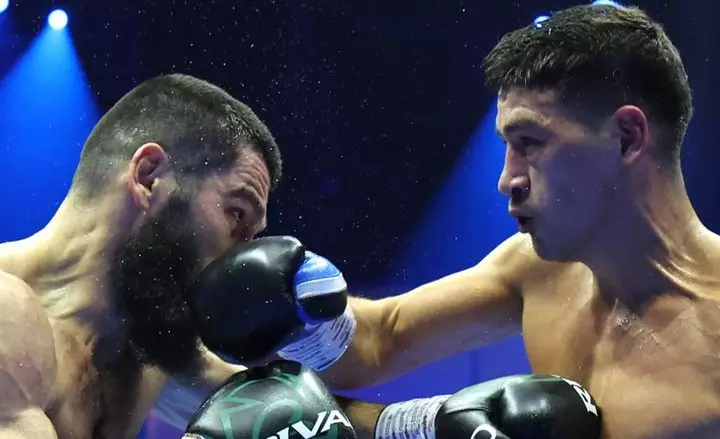In the world of boxing, few events stir opinions as passionately as a closely contested championship bout. Recently, Artur Beterbiev’s bout against Dmitry Bivol for the undisputed light heavyweight title became a focal point, with the majority decision awarded to Beterbiev sparking heated debate among fans and analysts alike. This article will dissect the match elements and the ensuing discussions over its outcome, examining the factors that contributed to Beterbiev’s victory and the criticisms against it.
From the opening bell, the fight showcased the stark contrast in styles between the two fighters. Bivol entered the ring with a clear game plan: utilize his superior footwork and defensive skills to keep Beterbiev at bay while landing effective jabs and combinations. His fluid movement allowed him to dictate the pace early on, striking with precision and evading Beterbiev’s power punches with remarkable efficacy.
In contrast, Beterbiev, known for his aggressive and powerful approach, adopted a more measured strategy. He patiently stalked Bivol, looking for openings without rushing into exchanges. This tactical patience paid off, as he began to increase his output in the later rounds. The ability to adapt his strategy reflectively throughout the fight contributed significantly to Beterbiev’s ability to claim the decision, even if many observers felt the scorecards didn’t truly reflect the action in the ring.
The fight illustrated a key principle in boxing: defense can often be as crucial as offense. Bivol’s defensive work—characterized by his use of jabs and tactical retreats—was instrumental in winning many of the early rounds. Several seasoned former champions, including Chris Algieri and Paulie Malignaggi, raised points during the broadcast about the effectiveness of Bivol’s defense and how scoring criteria often favor aggressors, thereby creating discrepancies in judged results.
Beterbiev found himself in pursuit mode for much of the match, and while he did land hard shots, particularly in the middle and later rounds, there were moments where he appeared unable to reach Bivol effectively. Observers noted Bivol outmaneuvering Beterbiev at pivotal points, accumulating points with well-placed jabs that kept the harder-hitting Beterbiev from finding his rhythm.
As the fight progressed, it became clear that the judges would face a complex decision predicament. The official scoring of 114-114, 115-113, and 116-112 in favor of Beterbiev drew immediate scrutiny from fans and analysts alike. Many believed Bivol’s deft footwork and effective jabs should have been regarded with higher merit, especially considering how often he seemed to control center ring.
Interestingly, the bout has rekindled scrutiny over traditional judging methods, highlighting how subjective the criteria can be based on each judge’s interpretation. While many fans applaud Beterbiev’s power and output, others maintain that effective boxing, as demonstrated by Bivol, often goes undervalued in the eyes of judges trained to emphasize aggressive action over tactical execution.
The aftermath of the fight has seen a divided boxing community. Supporters of Beterbiev herald his victory, appreciating the tactful adjustments he made during the contest. Conversely, Bivol’s fans assert that he was unfairly denied recognition for his boxing IQ and defensive prowess, suggesting this bout reflects larger issues within professional boxing regarding judging and fighting styles.
Looking ahead, Beterbiev’s victory positions him as a significant player in the light heavyweight division, yet it emerges alongside questions of legitimacy. If a controversial decision overshadows a championship bout, it impacts fan engagement and the perception of future matchups. As Beterbiev aims to solidify his legacy, both he and boxing authorities must acknowledge the need for discussions surrounding scoring to ensure a fair portrayal of boxing talent.
The contest between Artur Beterbiev and Dmitry Bivol serves as a pivotal moment in boxing discourse, illustrating the complex interplay between styles, scoring, and public perception. Regardless of the outcome, it remains essential for both fighters and officials to recognize the nuances of the sport to cultivate a fair and engaging environment for fans and fighters alike.

